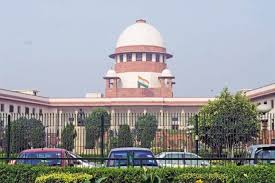The appellant is the husband of the deceased, who was convicted for the offences punishable under Sections 306 and 498A of the Indian Penal Code (Para 1)
Apart from relying upon the dying declaration, the prosecution relied upon the evidence of PW1- Dolabhai, the father of the deceased and PW4- Pravin Kumar, the brother of the deceased. Unfortunately, both the father and the brother did not support the prosecution and they were declared hostile. Admittedly, nothing could be brought on record in their cross-examination conducted by the public prosecutor for the benefit of the prosecution. (Para 1)
On a conjoint reading of answers given to question Nos. 6 and 7, assuming that what is stated therein is correct, we find that according to the deceased, it was the conduct of the motherin-law, which prompted her to take the extreme step. It is pointed out that initially the mother-in-law was made an accused but she died. Taking the allegation made by way of answer to question No. 6 against the appellant-husband as correct, it is not sufficient to come to the conclusion that the act done by the husband was the cause for immediate instigation to the deceased to take the extreme step of burning herself. (Para 4)
What is most important is that Bhavna, the sister of the deceased was present when the alleged act of mother-in-law quarreling with the deceased and her husband giving two or three stick blows to the deceased took place. The prosecution has not explained why the evidence of this material witness was withheld from the Court. This is one reason for drawing an adverse inference against the prosecution. (Para 5)
There are other factors on the basis which we can say that the dying declaration is not free from a serious doubt. The said reasons are as under:
(i) The dying declaration itself does not bear the endorsement of the doctor regarding the fitness of the deceased to make a statement;
(ii) A panchnama (Exhibit ’29’) was recorded around 10:10 P.M. on 31.07.1994, which records that the deceased was barely able to tell her name and she stated that she could not speak. The alleged dying declaration was recorded between 09:45 P.M. to 10:00 P.M.;
(iii) Even the police personnel, who recorded the panchnama has stated that the deceased was not in a position to speak; and
(iv) PW5 – Dr. Rajendra, who examined the deceased stated in the cross-examination that when he asked the deceased about the cause of burn injuries, she disclosed that she poured kerosene on herself. But she gave no reason why she did the act. (Para 6)
These factors taken together create a serious doubt about the correctness of the dying declaration. Therefore, the dying declaration will have to be kept out of consideration. In any case, the dying declaration is not of that sterling quality on which the conviction can be based in absence of any other evidence. Therefore, the prosecution has failed to prove the guilt of the appellant beyond a reasonable doubt. The appeal succeeds and the impugned orders are quashed and set aside. The appellant is acquitted. (Para 7)
SUPREME COURT OF INDIA
2023 STPL(Web) 420 SC
[2023 INSC 977]
Shambhubhai Kalabhai Raval Vs. State Of Gujarat
Criminal Appeal No(s). 6 of 2011-Decided on 02-11-2023
https://stpllaw.in/wp-content/uploads/2023/11/2023-STPLWeb-420-SC.pdf







